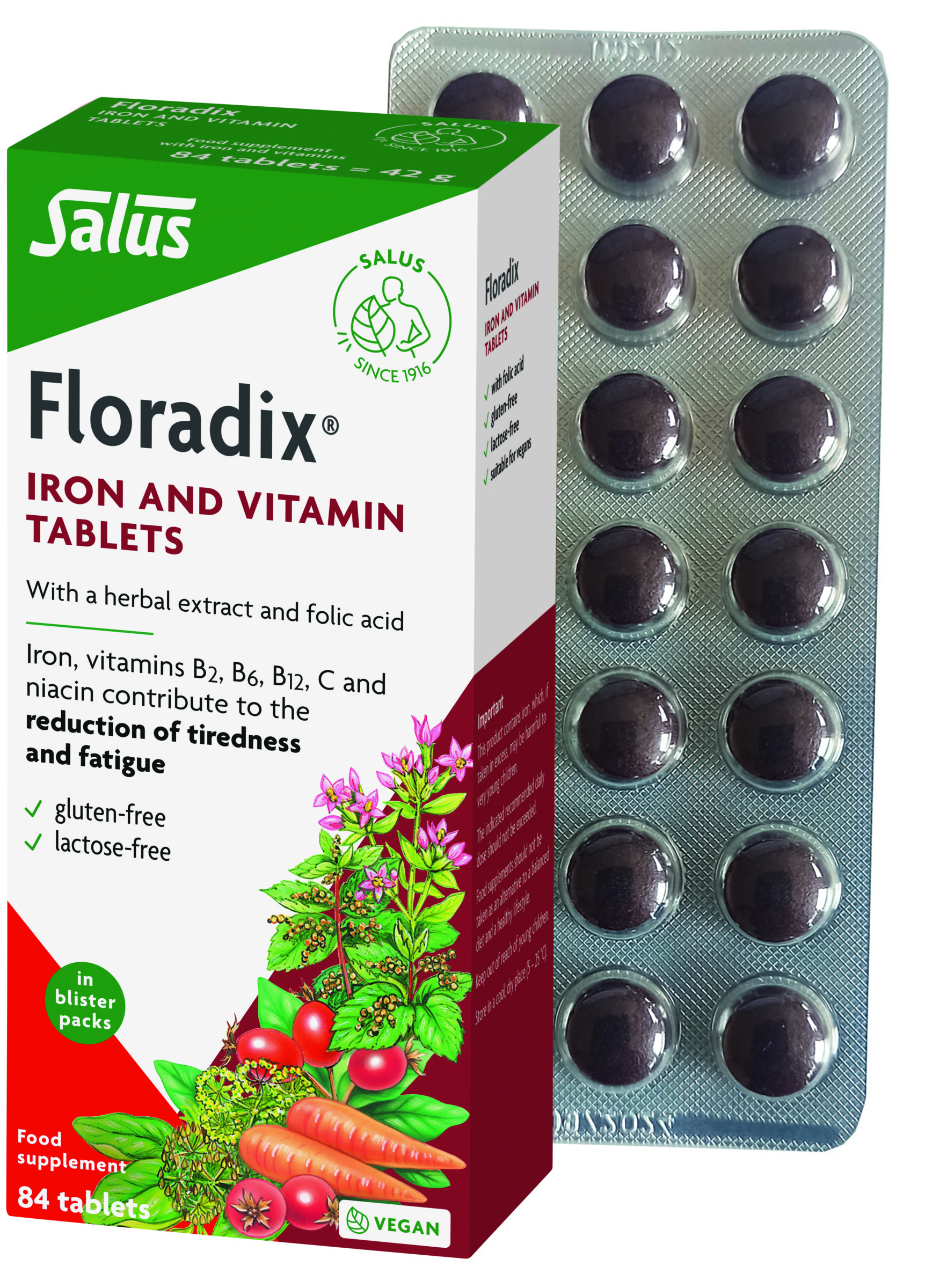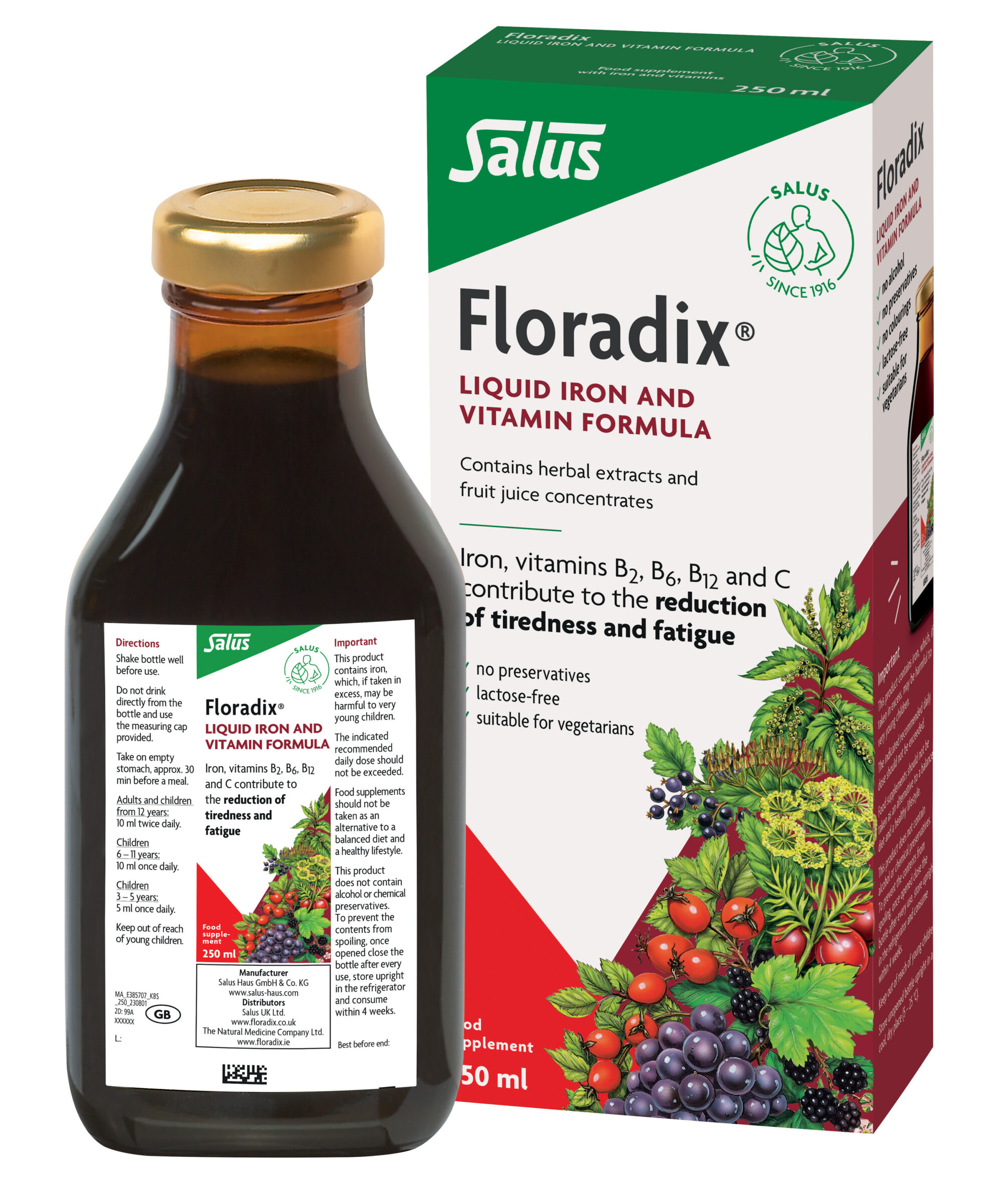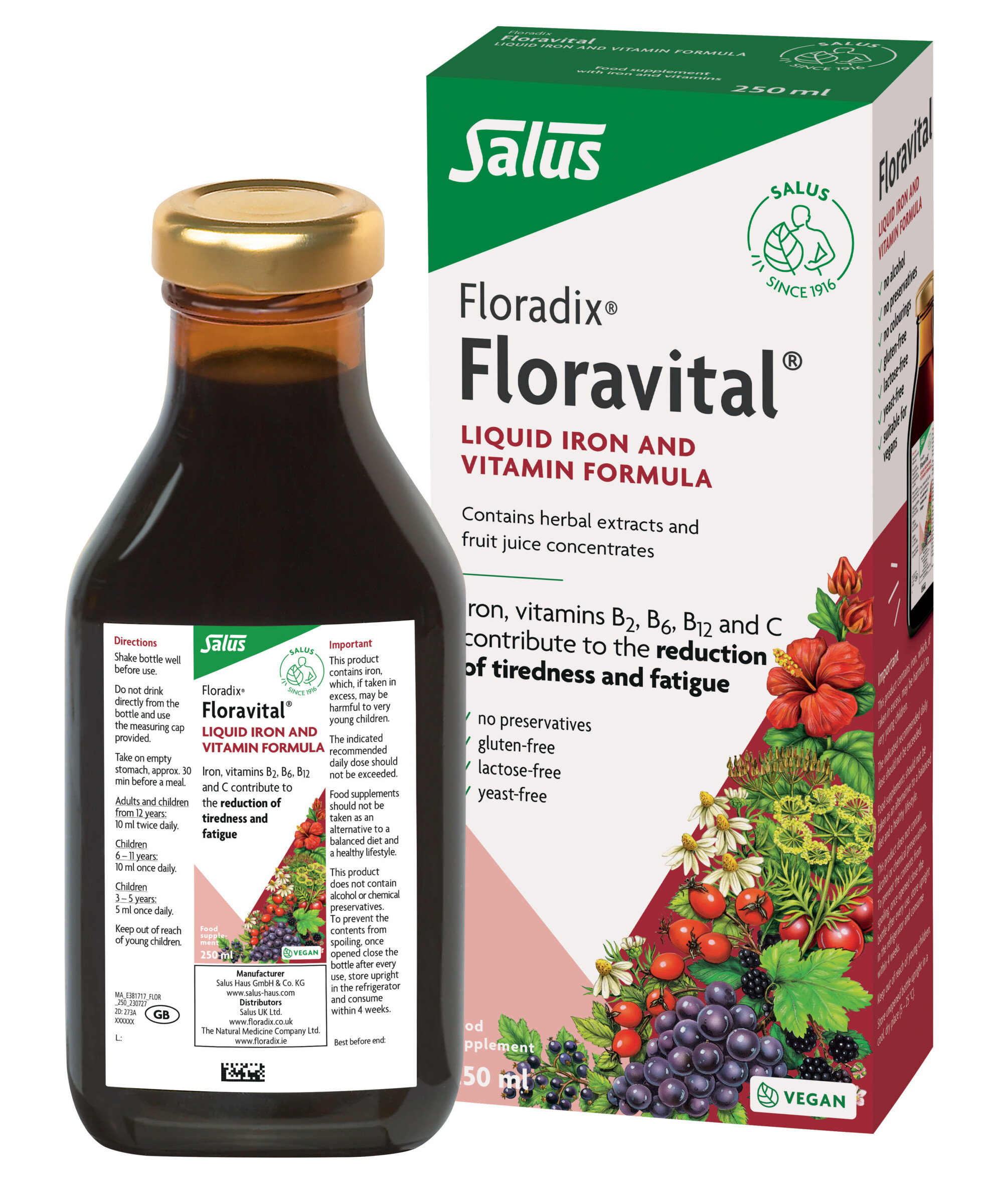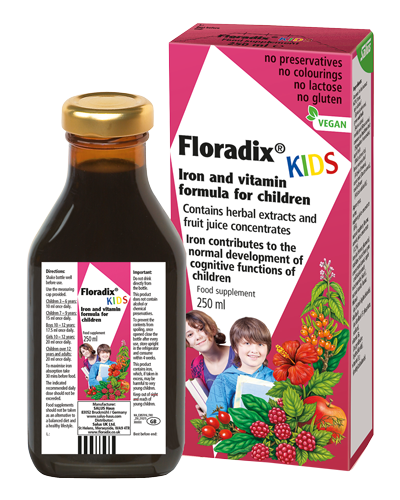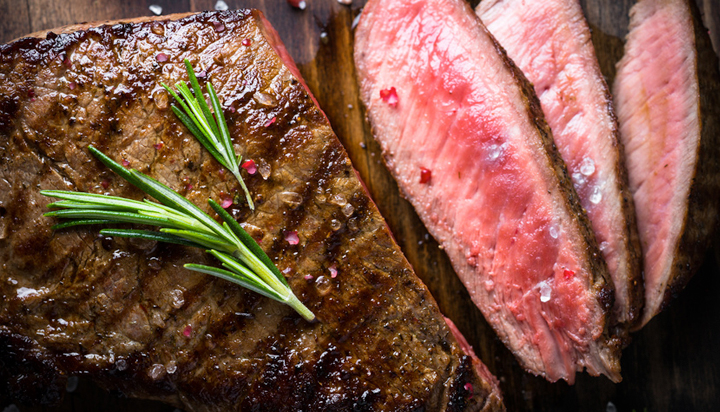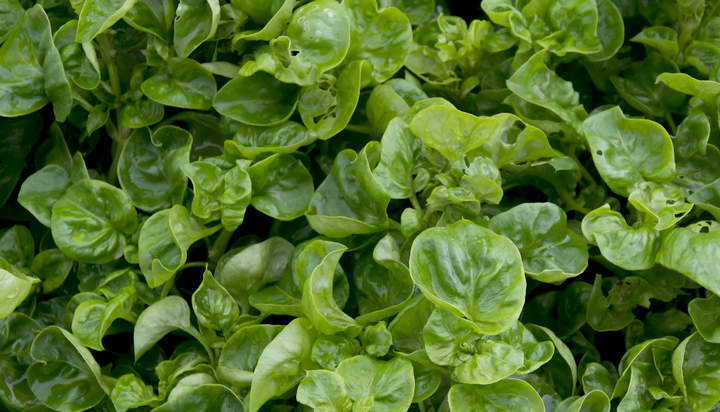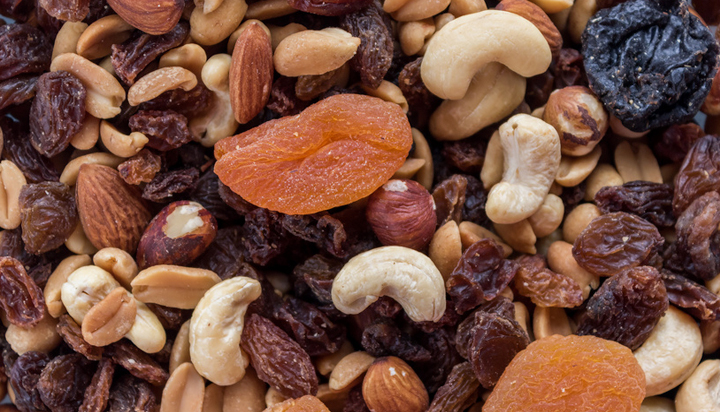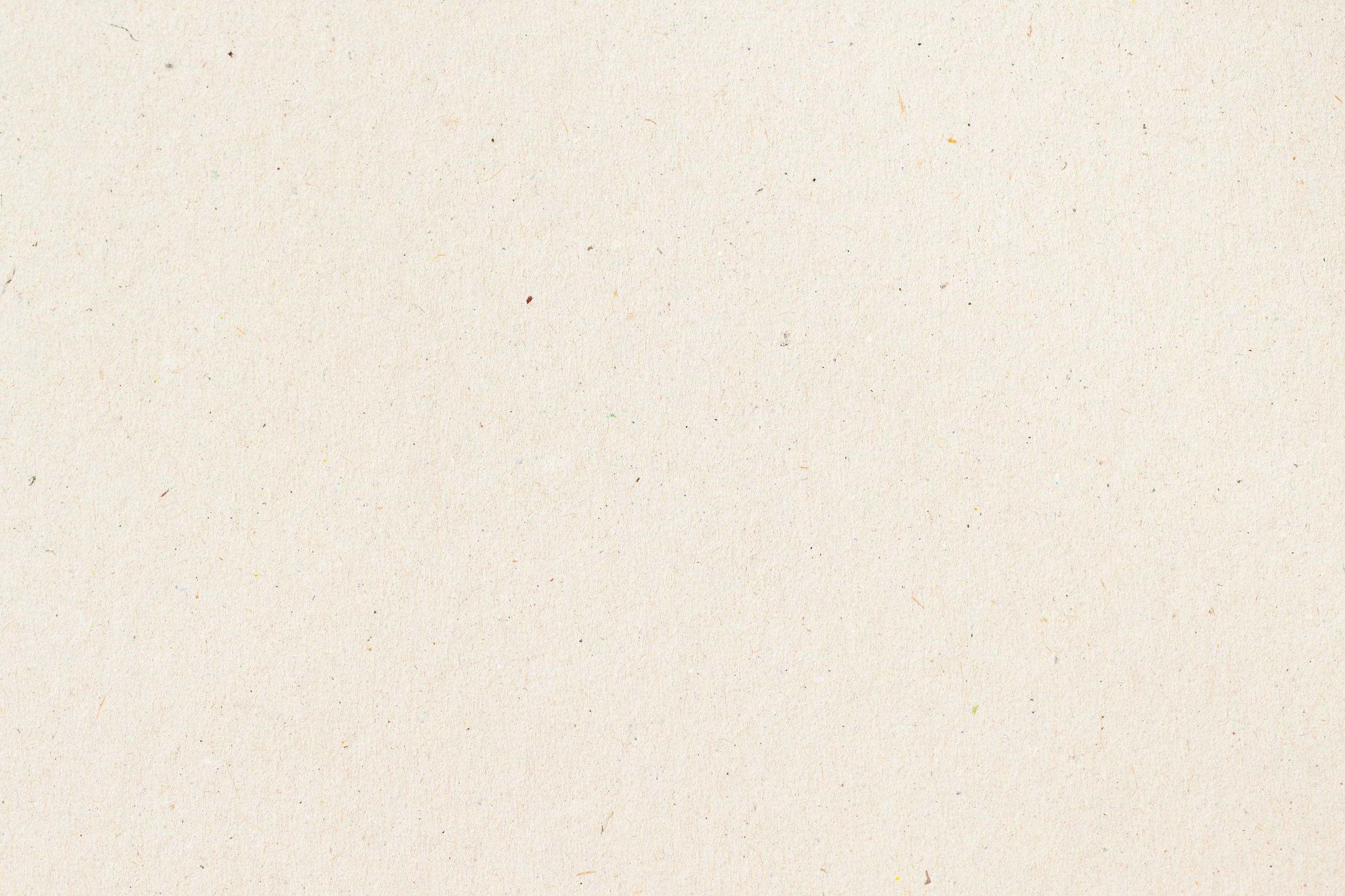Iron
Are you tired of being tired? If you are feeling tired all day, a lack of iron could be the reason…
Iron is an essential mineral that helps to make red blood cells, which transport oxygen around the body. If you don’t have enough iron, your body can’t make enough healthy oxygen-carrying red blood cells. Without healthy red blood cells, your body can’t get enough oxygen and without sufficient oxygen in the body, you’re going to become fatigued.
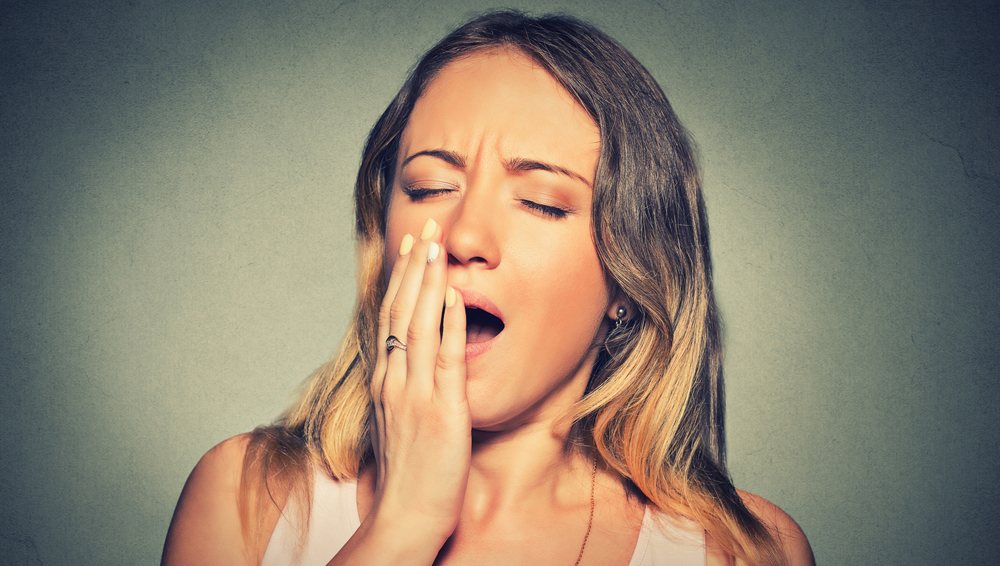
Symptoms of low iron levels
If you’re not getting enough iron, you may find the condition of your hair and nails deteriorates, or you may develop cracked skin around the corners of your mouth. Once your body’s iron levels are depleted, you are more likely to develop anaemia (the more exhausted you feel, the closer you are to developing the condition). As iron levels drop, you may feel breathless and suffer palpitations.
Reasons for low iron levels
Restricted diets, that don’t contain enough iron-rich foods.
Women are approx. 10 times more likely to suffer from a lack of iron due to menstruation. Just a few heavy periods in row can cause a loss of this vital mineral.
Pregnancy and breastfeeding can significantly lower a woman’s iron levels and further blood loss occurs during childbirth which places more strain on iron reserves.
Drinking excessive tea or coffee can inhibit iron absorption from food.
What is iron needed for?
- Iron can contribute to the reduction of tiredness and fatigue.
- Contributes to normal formation of red blood cells and haemoglobin.
- Contributes to normal oxygen transport in the body.
- Contributes to normal energy-yielding metabolism.
- Contributes to normal function of the immune system.
IRON-RICH FOOD
- dark-green leafy vegetables, such as watercress and curly kale
- iron-fortified cereals or bread
- brown rice
- pulses and beans
- nuts and seeds
- red meat
- fish
- tofu
- eggs
- dried fruit, such as dried apricots, prunes and raisins
THE AMOUNT OF IRON YOU NEED IS:
- 8.7mg a day for men (19-64 years)
- 14.8mg a day for women (19-50 years)
- 8.7mg a day for women (over 50 years)
You should be able to get all the iron you need from your daily diet, however there are times when you may need a supplement.
Women who lose a lot of blood during their monthly period may need to take an iron supplement.
Taking 17mg or less a day of iron supplements is unlikely to cause any harm. But continue taking a higher dose if advised to by your GP.
Source: www.nhs.uk (Next review due 03/08/2023)
